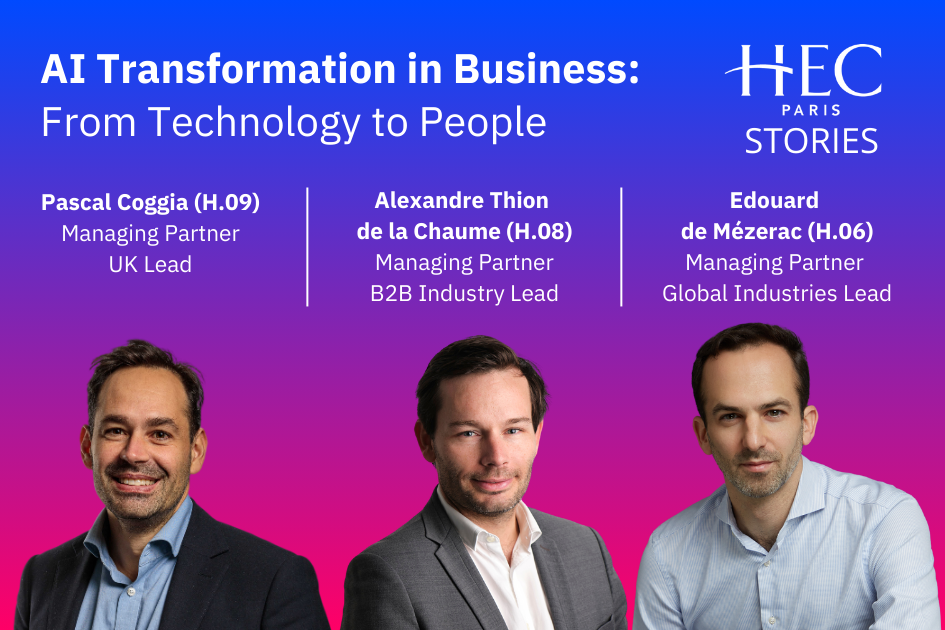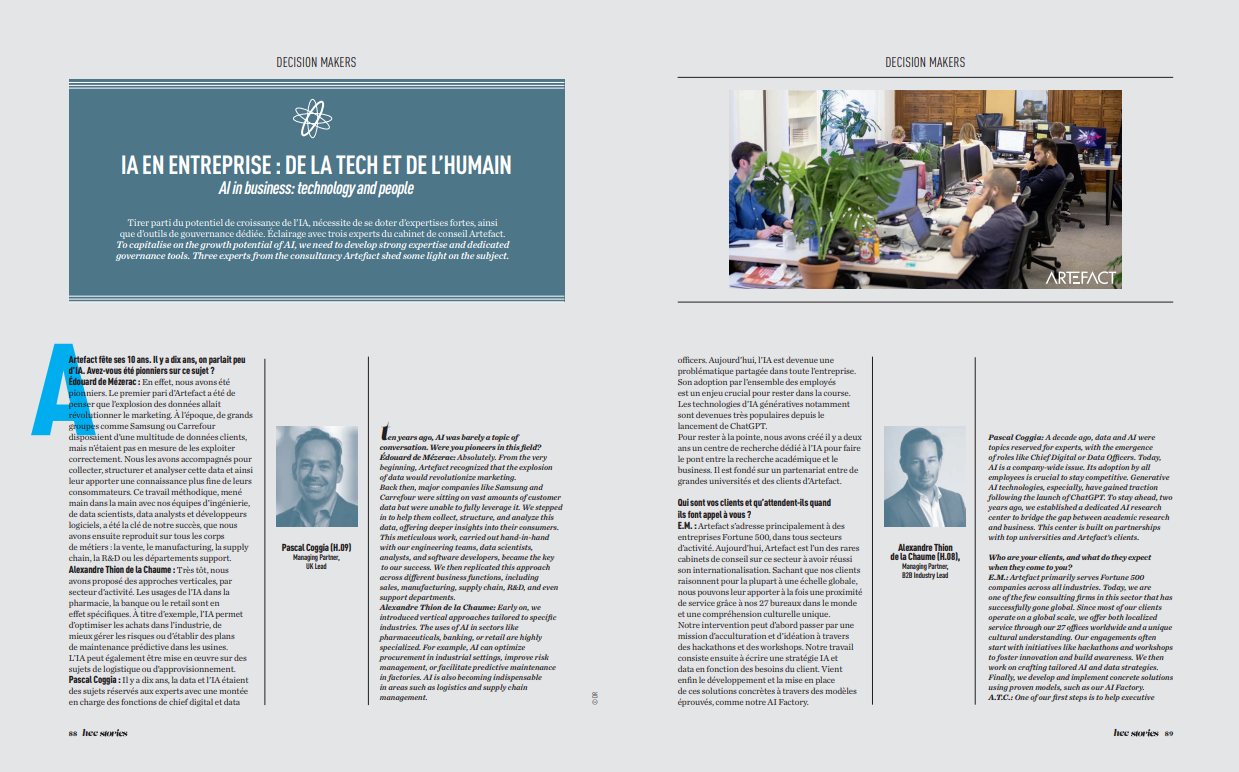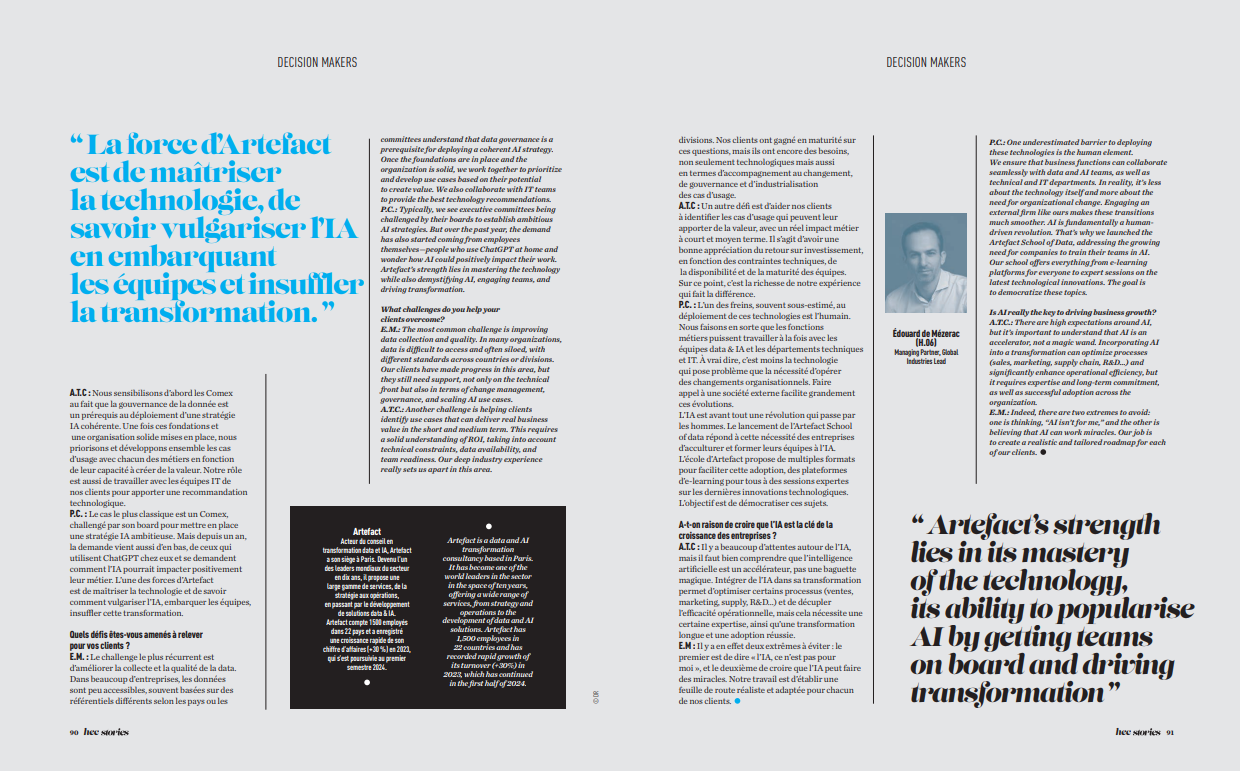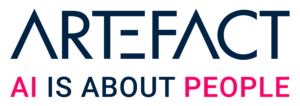AI has the potential to enhance companies' growth prospects, but its deployment within organizations requires strong business and technological expertise, as well as the establishment of dedicated data and AI governance.
Insights from three experts from consulting firm Artefact:
– Pascal Coggia (HEC 2009), Managing Partner, UK Lead
– Alexandre Thion de la Chaume (HEC 2008), Managing Partner, B2B Industry Lead
– Edouard de Mézerac (HEC 2006), Managing Partner, Global Industries Lead
Based in Paris, Artefact is a data and AI transformation consultancy that has become a global leader in the sector over the past 10 years. Artefact offers a wide range of services, from strategy to operations, including the development of data and AI solutions. Artefact has 1,500 employees in 22 countries and recorded strong revenue growth (+30%) in 2023, which was equally significant in the first half of 2024.
Artefact is celebrating its 10th anniversary. Ten years ago, AI was rarely discussed. Were you pioneers in this area?
Edouard de Mézerac: Yes, we were pioneers. Artefact’s first bet was that the explosion of data would revolutionize marketing. At that time, large companies like Samsung or Carrefour had vast amounts of customer data but couldn’t use it effectively. We helped them collect, structure, and analyze all this data, providing them with a real in-depth understanding of their consumers. This methodical approach and our close collaboration with engineering teams, data scientists, data analysts, and software developers, were key to our success, which we later replicated across all business areas, including sales, manufacturing, supply chain, R&D, and support departments.
Alexandre Thion de la Chaume: Early on, we developed vertical approaches, by sector of activity, to better address our customers’ challenges. The use of AI in pharma, banking or retail is of course specific. In industry, for example, AI can be used to optimize purchasing, better manage risks or establish predictive maintenance plans in factories. AI can also be applied to logistics and procurement issues.
Pascal Coggia: Ten years ago, data and AI were mainly expert subjects, with the rise of Chief Digital and Data Officers. Today, AI is a widespread concern across the entire company. Its adoption by all employees has become crucial to stay competitive. Generative AI technologies, like ChatGPT, have quickly gained popularity. To stay at the forefront, we established a dedicated AI research center two years ago to bridge advanced academic research with business needs. It is built on a partnership between major universities and Artefact clients.
Who are your clients, and what do they expect when they come to you?
Edouard de Mézerac: Artefact primarily serves Fortune 500 companies across all industries. Today, Artefact is one of the few consulting firms in this sector to successfully internationalize. As our clients often operate globally, we provide both local service through our 27 offices worldwide and a unique cultural understanding. Our involvement often begins with acculturation and ideation missions through hackathons and workshops. We then develop an AI and data strategy tailored to the client’s needs, followed by the implementation of concrete solutions using proven models, such as our AI Factory.
Alexandre Thion de la Chaume: We first raise awareness within executive committees (Comex) that data governance is a prerequisite for a successful AI strategy. Once solid foundations and organization are in place, we prioritize and develop use cases with each department based on their value creation potential. We also collaborate with clients’ IT teams to provide technology-agnostic recommendations.
Pascal Coggia: The typical case is a Comex challenged by its board to implement an ambitious AI strategy. But over the past year, demand has also come from the bottom up, from employees who use ChatGPT at home and wonder how AI could positively impact their work. Artefact’s strength lies in mastering the technology and knowing how to demystify AI, engage teams, and drive transformation.
What challenges do you face when working with your clients?
Edouard de Mézerac: The most common challenge is data quality and collection. In many companies, data is not easily accessible and is often based on different reference systems, depending on the country or division. While our clients have matured in these areas, they still need both technological and change management support, as well as data governance and industrialization of use cases.
Alexandre Thion de la Chaume: Another challenge is helping our clients identify use cases that will bring value, with a real business impact in the short to medium term. This requires a good understanding of return on investment and making the right bets based on technical constraints, availability, and team maturity. Our wealth of experience makes the difference.
Pascal Coggia: A frequently underestimated obstacle is the human factor. We ensure that business functions can collaborate with data and AI teams and technical and IT departments. It’s not so much the technology that’s problematic but rather the organizational changes required. Bringing in an external company can greatly facilitate these transitions. AI is primarily a people-driven revolution. The launch of the Artefact School of Data addresses the need for companies to educate and train their teams in AI. Artefact’s school offers multiple formats to facilitate this adoption, from eLearning platforms for all to expert sessions on the latest technological innovations. The goal is to democratize these topics.
Is AI truly the key to business growth?
Alexandre Thion de la Chaume: There are many expectations around AI, but it’s important to understand that AI is an accelerator, not a magic wand. Integrating AI into a transformation process optimizes functions like sales, marketing, supply chain, and R&D, greatly enhancing operational efficiency. However, it requires expertise, a long-term transformation, and successful adoption.
Edouard de Mézerac: There are two extremes to avoid: the first is to say, “AI isn’t for me,” and the second is to believe that AI can perform miracles. Our job is to build the right roadmap for our clients.

 BLOG
BLOG